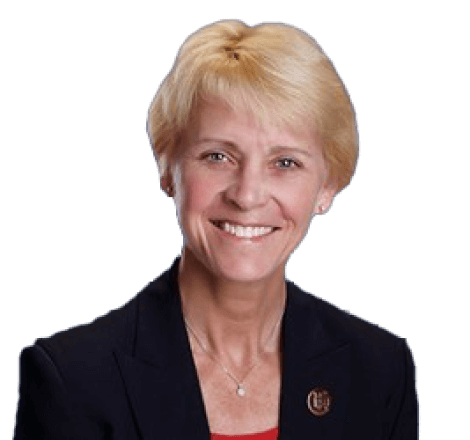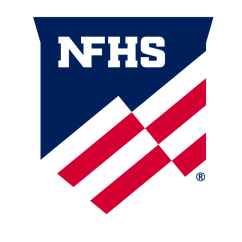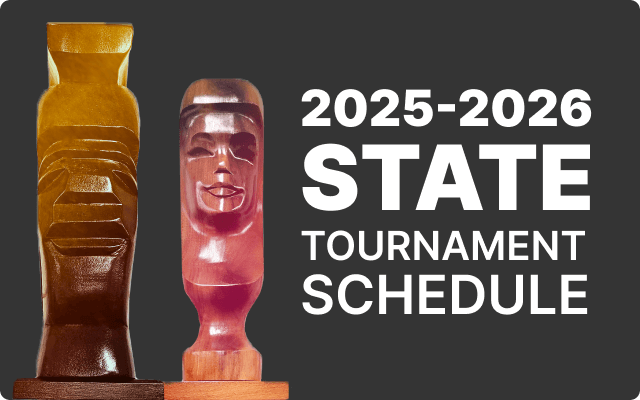The NFHS Voice

 The NFHS Voice
The NFHS Voice
Homegrown Pride: The Common Thread Between High School Sports and The Olympics Games
Dr. Karissa L. Niehoff, NFHS Executive Director
During a press briefing on August 3, International Olympic Committee President Thomas Bach released the remarkable viewership and engagement statistics generated by a scintillating opening week of action at the 2024 Summer Olympics.
“All these audiences benefit from the incredible images of Paris and France going to the world thanks to Olympic Broadcasting Services and our media rights holders,” he said. “Therefore, we can say with great confidence that we are on track for more than half of the world’s population to follow the Olympic Games Paris 2024.”
The numbers behind Bach’s confidence are eye-popping: audience shares of 83.3 percent in France for the Opening Ceremony and 82.7 percent in Japan over the first two days; 34 million average American viewers watching nightly on NBC platforms; 8.5 billion engagements on official Olympics social media channels. Regardless of the metric, the conclusion is clear – the world has once again been brought together through sport.
Reflecting deeper on this larger-than-life example of global convergence, there seems to be a parallel to the converging energy we see within our NFHS landscape. Though exponentially larger in scale, the force currently uniting our world’s diverse populations around their televisions and computer screens is the same one that drives entire communities to gather at high school sporting events on any given night during the school year.
Unlike the American college and pro sports ranks, where financial motivations continue to expand and athletes are recruited, selected and signed to play for universities and franchises from coast to coast, every Olympic athlete and nearly every high school athlete is truly a “homegrown” product – a direct representative of the people, the cultures and the traditions of their upbringing.
At the high school level, we see this intimate bond of local pride personified daily. We see it in every sprint to ring the victory bell. We see it at every homecoming parade – on every ring finger honoring a past state title and on every dusty letterman’s jacket that resurfaces from the closet. We see it on every hand-painted team bus that’s “on the way to state” and every time a team is immediately mobbed by its student section after accepting the championship trophy. Every athlete and every supporter are bound by the same formative piece within their personal identities.
The same rings true at the Olympic Games, which function as some of our only opportunities to share our national pride with our country’s greatest athletes. And although we don’t get to interact with them personally, we often find out firsthand just how much it means to them to compete for the United States on our behalf.
“They’ve all heard the anthem on the podium and I haven’t yet,” said the 22-year-old Smith of her teammates, Lilly King, Gretchen Walsh and Torri Huske. “I’m so excited to be up there with them this time and to get to do it. I’m so thrilled.”
Gymnastics superstar Simone Biles provided another following her two gold-medal performances in the women’s team competition and the women’s all-around.
“You work your whole entire life for moments like this, to represent your country on an Olympic stage,” Biles said. “And we did just that this weekend, so we’re so proud.”
But perhaps the most profound instance came from men’s golf individual stroke play gold medalist Scottie Scheffler, who is just 10 years removed from winning his third consecutive state title at Highland Park High School in Dallas, Texas. Well-known for his emotional intelligence and steely nerves as the top-ranked golfer in the world and a winner of six tournaments thus far during the 2024 PGA Tour season, Scheffler cried openly on the podium after receiving his gold medal.
“I would say first and foremost I'm proud of the country I'm from. I'm proud to be American,” Scheffler said. “I got emotional the other night watching the gold medal ceremony for the women's gymnastics. I take tremendous pride in coming over here and representing my country.
“It was just very emotional being up there on stage there as the flag is being raised and sitting there singing the National Anthem. Yes, that's definitely one I'll remember for a long time.”
Dr. Karissa L. Niehoff is in her seventh year as chief executive officer of the National Federation of State High School Associations (NFHS) in Indianapolis, Indiana. She is the first female to head the national leadership organization for high school athletics and performing arts activities and the sixth full-time executive director of the NFHS. She previously was executive director of the Connecticut Association of Schools-Connecticut Interscholastic Athletic Conference for seven years.









